There’s no doubt that LGBT folks have always been a big part of psychotronic film audiences. From the days of Universal monsters, when James Whale injected queer subtext into the likes of THE BRIDE OF FRANKENSTEIN to today’s age of Ryan Murphy churning out horror story after horror story, there has always been a queer audience eager to take in offbeat exploitation cinema.
Of course, there hasn’t always been the content for that audience that included explicitly queer themes. Sure, there are smatterings here and there, like the work of John Waters, THE ROCKY HORROR PICTURE SHOW or LIQUID SKY, but exploitation film has largely been a straight man’s game. (There’s plenty of lesbian content, but with a few exceptions like Radley Metzger’s THERESE AND ISABELLE, it’s been largely geared with straight male titillation in mind rather than exploring actual lesbian relationships.) Queer exploitation fans can point to the likes of GLEN OR GLENDA?, CRUISING, A NIGHTMARE ON ELM STREET 2, THE LOST BOYS or FRIGHT NIGHT or post-new queer cinema entries like THE DOOM GENERATION, HELL BENT or CLOSET MONSTER, and more adventurous filmgoers may seek out oddities like Bob Clark’s SHE-MAN, WINDOWS, BUTCHER BAKER NIGHTMARE MAKER, David DeCoteau’s SKELETONS or numerous hardcore efforts that have exploitation themes (DRIVE, THE DESTROYING ANGEL, AT TWILIGHT COME THE FLESH EATERS), but actual, grimy, down and dirty exploitation films that pop up on video store shelves with gay themes are few and far between.
With that in mind, I wanted to dig a little deeper and present a few films with gay themes that may have fallen below the cult cultural radar. Below are a dozen films that you may have passed right by at the video store – if they appeared at your local store at all – that feature unexpected, and often surprising, queer content. So put on some leather chaps, stick a hankie in your right back pocket, and come with me into a world of underground gay bars, serial killers, British crime, phone sex, and, of course, drag queens galore!
(This is just the tip of the iceberg as far as gay exploitation obscurities go – be sure to check out the likes of STICKS AND STONES, SURRENDER DOROTHY, MURDER BY NUMBERS (1989), KATE’S ADDICTION, JADED, FORTY DEUCE, VENUS FLYTRAP, PORNOGRAPHY: A THRILLER, CAGED MEN, BEAUTIFUL MYSTERY, LOVE BITES, IN THE GLITTER PALACE, and SOMETIMES AUNT MARTHA DOES DREADFUL THINGS as well, for starters!)
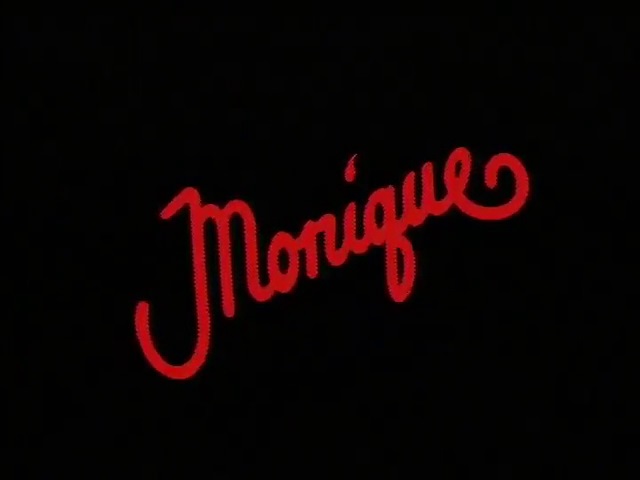
MONIQUE (NEW YORK AFTER MIDNIGHT) (1978)
French director Jacques Scandelari directed two films released in 1978 about a French person coming to New York City in order to find love. The more well-known is NEW YORK CITY INFERNO, a well-regarded hardcore film concerning a man who comes to NYC to find his male lover and ends up getting involved in the leather scene. The second film is MONIQUE, also known as NEW YORK AFTER MIDNIGHT and FLASHING LIGHTS, is a much odder film, in which the titular Monique (Florence Giorgetti) works as a book publisher who begins a relationship with a conceptual artist Richard (John Farris) with a secret.
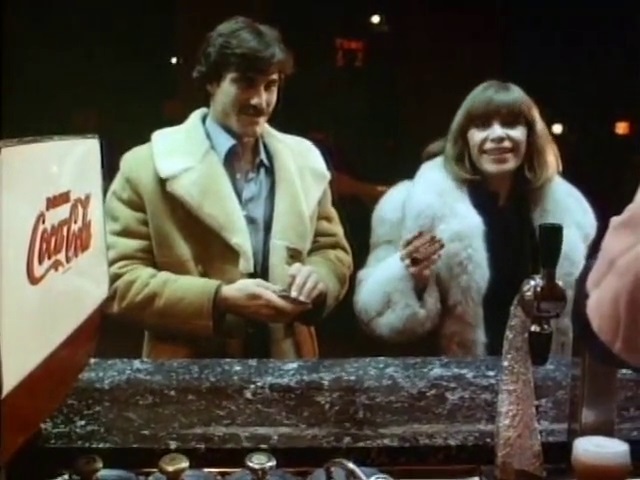
As NEW YORK CITY INFERNO is a hardcore gay S&M film and this list is about queer movies, I’ve probably shown my hand as to what the secret is, but that’s not what makes MONIQUE interesting. Monique herself, already psychologically unstable due to a past trauma, starts to track Richard down, going into a homicidal rage at various seedy gay NYC locales. If the bloodying of some of New York’s hottest gay nightspots circa 1977 aren’t enough for you, how about an appearance of Dennis Parker (aka gay porn star Wade Nichols) singing his hit, “Like an Eagle” in one of them? MONIQUE is a bizarre film, and I’m not sure where it’s coming from (it makes even less sense when compared to the free-wheeling, pro-sex world of NEW YORK CITY INFERNO), but it’s certainly a compellingly cryptic footnote in the world of queer cinema.
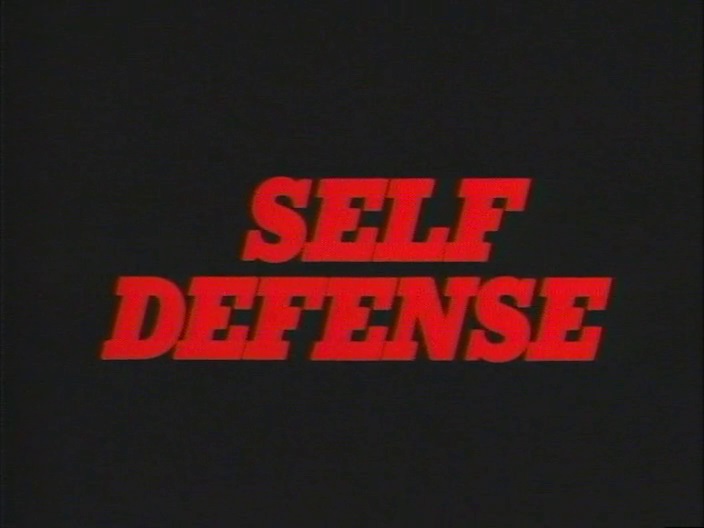
SIEGE (SELF DEFENSE) (1983)
The first feature film from director Paul Donovan, the Canadian auteur who later went on to make genre flicks like DEF-CON 4 and NORMAN’S AWESOME EXPERIENCE as well as the TV series LEXX, SIEGE takes place in Halifax during the 1981 police strike, even using footage from the strike itself as a way of getting the viewer up close and personal. As a result, a supremacist gang calling itself the “New Order” roams the streets, unchecked by power, and SIEGE’s plot begins with the gang taking over a members-only gay bar, then viciously killing virtually everyone in the place in order to cover up the accidental murder of the bartender.
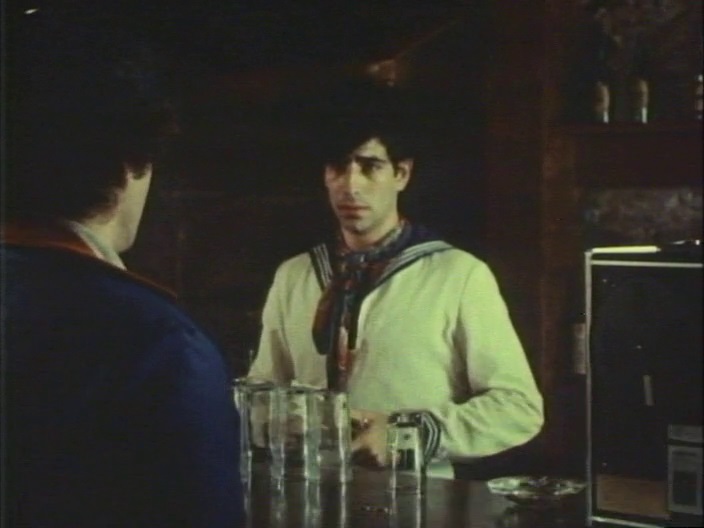
It’s a brutal sequence, shot with intensity, but SIEGE wouldn’t make this list solely for its depiction of a gay bar massacre. The film then follows the sole survivor of the terrorist attack, Daniel (Terry-David Despres) as he tries to seek help, finding refuge in an apartment building with a hetero couple, two single men, and a pair of blind students, who must now all fend off the gang who’ve come seeking to finish the job. The result is one of the best building-under-attack films of the era, a Canuxploitation film that, while it’s no ASSAULT ON PRECINCT 13, should be much better known in terms of raw power. It’s incredibly satisfying to watch the supremacists eventually get taken down, and other than catcalls by the gang, Daniel’s sexuality is barely referenced after the opening. We never really got a queer DEATH WISH in the ‘70s, so SIEGE is about as close as we can get.
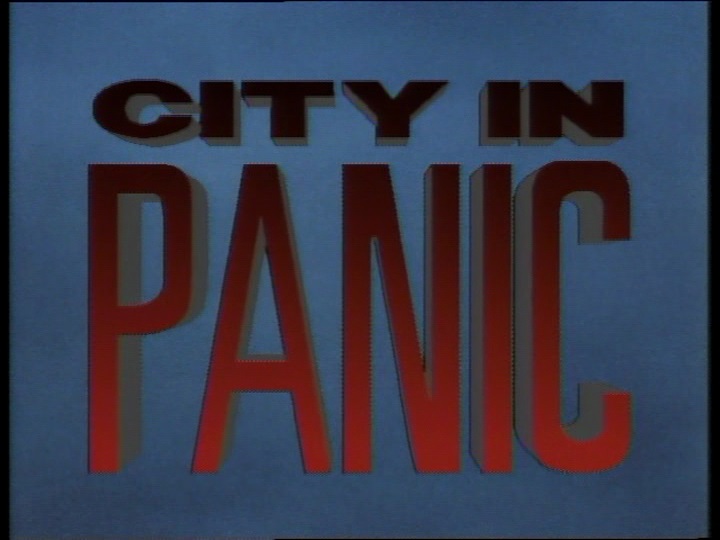
CITY IN PANIC (1986)
No movie that opens with a gender-swapped homage to Marion Crane’s death in PSYCHO is all bad, and Robert Bouvier’s CITY IN PANIC, a low-budget 16mm film shot in Toronto and inspired by a true story of a still-unsolved series of murders of gay men in the ‘70s, certainly isn’t. The opening murder is just one of several that have been happening in the area, and the connection seems to be that most of the victims were gay men. With the police at a loss, a radio host (David Adamson) gets involved, and the connection turns out to be related to the film’s original, significantly less generic, title, THE AIDS MURDERS.
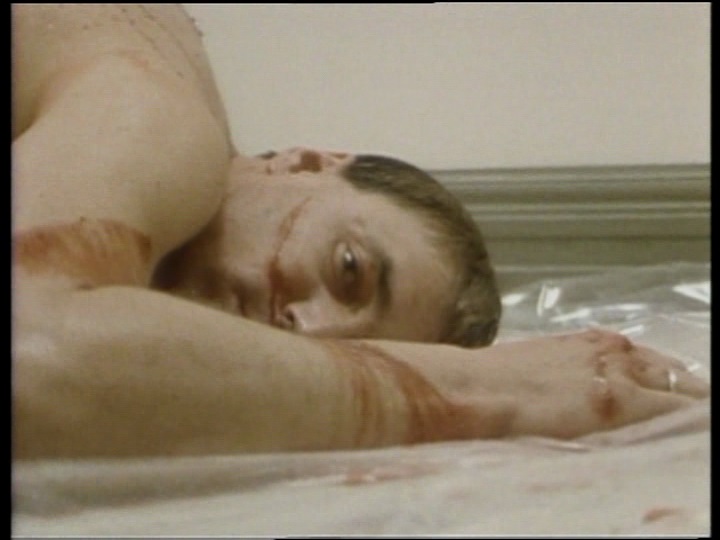
CITY IN PANIC is often generic and talky in its plotting and several of the actors seem to be in different movies, lending it an oddly inconsistent style, but the AIDS angle doesn’t seem exploitative, making reference to the way AIDS was seen by heterosexuals at the time. It’s not a subtle film, the music often drowns out dialogue and the meshing of the social commentary and (relatively bloody) slasher aspects never quite work, but it’s a fairly absorbing entry into the minimal subgenre of low-rent HIV-themed thrillers, a notch above the likes of PERFECT VICTIMS or L.A. AIDS JABBER.
CITY IN PANIC is available on DVD from Massacre Video.
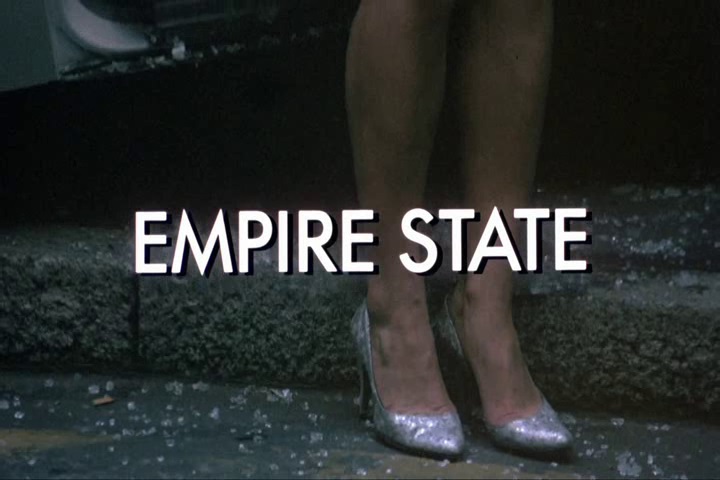
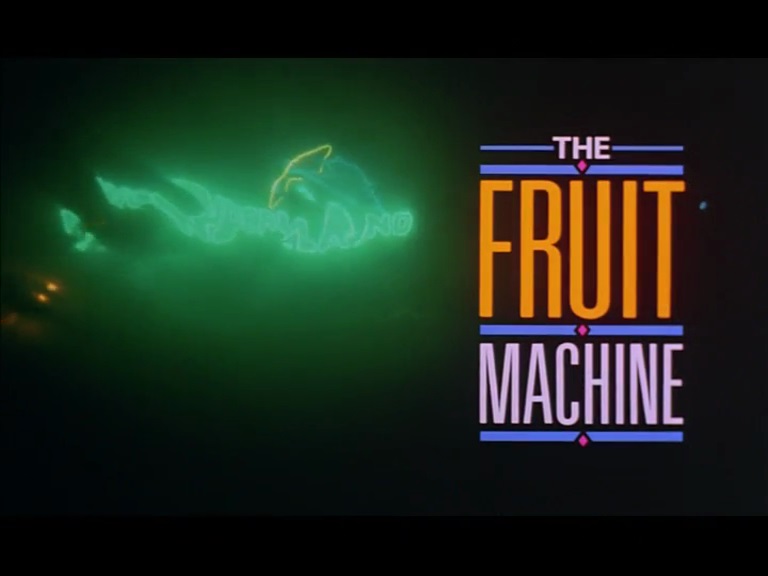
EMPIRE STATE (1987) and THE FRUIT MACHINE (1988)
While more prominent in the decades before and after, the British crime film was hitting some high notes in the 1980s, with the likes of MONA LISA, THE HIT and STORMY MONDAY getting play on both sides of the pond. Some films, however, fell by the wayside, and both EMPIRE STATE and THE FRUIT MACHINE (released in the U.S. as WONDERLAND) landing only negligible releases, and even then, their queer content was de-emphasized on their video box description. Both have to do with the seedier side of male hustling, so it’s not like they were treading completely progressive turf, but that doesn’t make them any less interesting.
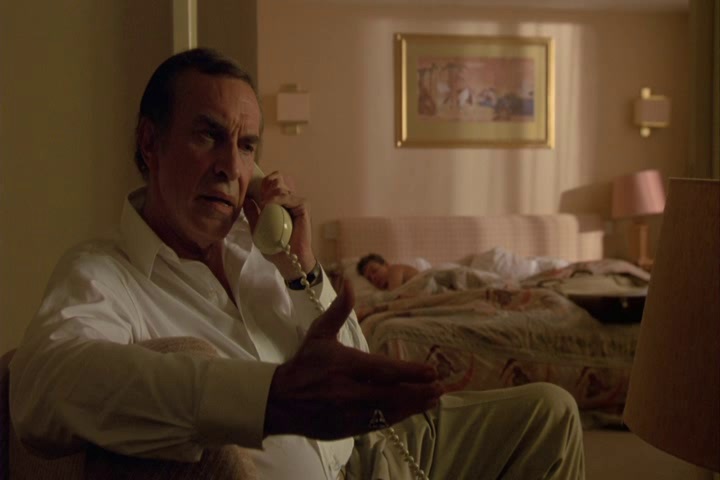
Ron Peck is mostly known for his groundbreaking gay teacher drama NIGHTHAWKS, but his only other narrative feature, EMPIRE STATE, has its compelling moments as well. A multi-character tale surrounding the potential sale of the titular East End entertainment complex to an American businessman (Martin Landau), several subplots of EMPIRE STATE involve hustler Johnny (Lee Drysdale) who is hired to service the investor while simultaneously training a new prospective protégé. The queer aspects are very matter-of-fact, the violence shocking, and the nudity equal-opportunity. In addition, the neon-lit locales give EMPIRE STATE a sheen that makes the film a nifty entry for any British crime fan to check out.
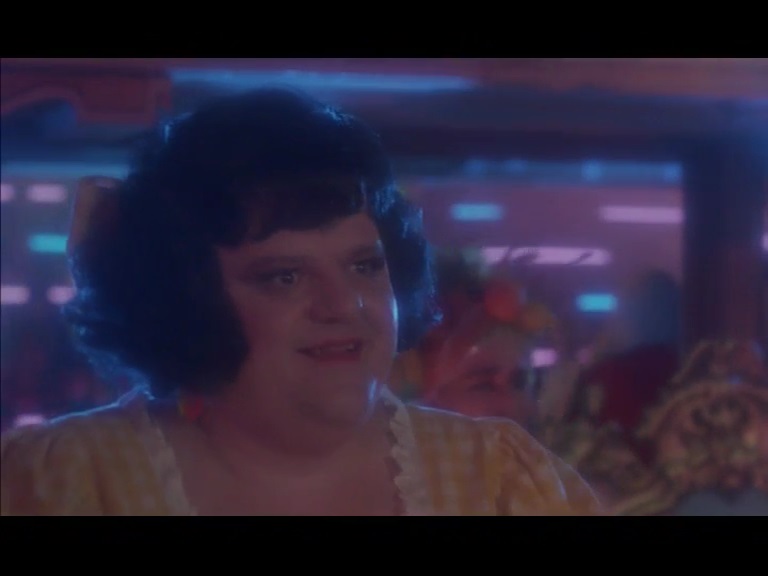
If that’s not enough for you, how about THE FRUIT MACHINE, which centers around a pair of friends (one gay, one… queer, at least) who witness the murder of gay nightclub owner Annabelle (Robbie Coltrane) and spend the rest of the film on the run? Exciting, well-crafted, and, again, neon-lit in all its ‘80s glory, director Philip Saville (who’d earlier played with gender in the sci-fi oddity SHADEY) makes THE FRUIT MACHINE a truly engrossing experience. A pair of compelling queer lead characters in an ‘80s British thriller, with Bruce (PASSENGER 57) Payne and Clare (HELLRAISER) Higgins to boot? Someone get this a stateside Blu-ray release, stat.
EMPIRE STATE is available for streaming on Amazon Prime
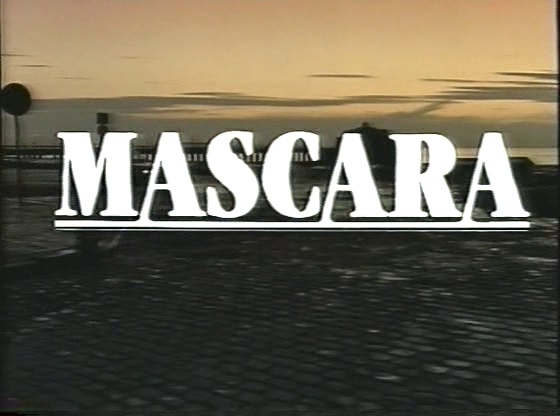
MASCARA (1987)
An oddity even by the standards of Cannon Films’ imports, Patrick Conrad’s MASCARA is a psychothriller set in the world of underground Dutch transvestite clubs, starring Michael Sarrazin as Bert, a police detective with odd relationships with both the clubs and his sister (Charlotte Rampling). The gender-bending aspects weren’t mentioned in the promos for the film, and you could certainly watch the first half hour without realizing that there were transgender characters if you weren’t paying much attention. Eva Robin’s, an intersex actress who played Dedalos in the Lou Ferrigno HERCULES films, gets the big reveal moment as Bert’s friend/lover(?) Pepper when while changing, her male appendage appears, accompanied by a musical key so ominous you’d think she was seducing her father. She soon finds herself on the wrong end of a throat throttle and ends up a classical queer victim, replaced by Romy Haag’s Lana, another singer at the club, who pressures Bert to find her friend’s killer and ends up replacing her in more ways than one.
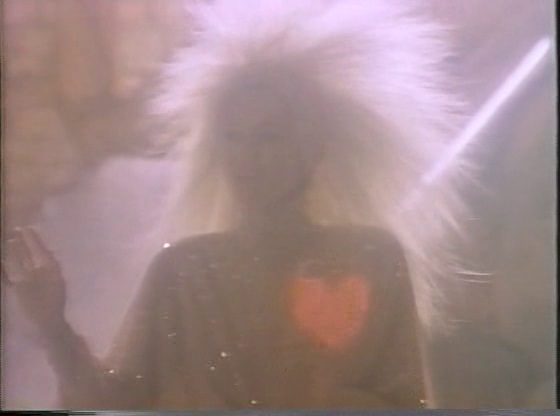
MASCARA naively blends transsexualism with multiple kinks, resulting in a club that features female impersonators performing while leather-masked fetishists spit food into each other’s mouths like birds, making the underground feel more like a mad compilation of Weimar-era Berlin rather than a place where professionals of the ‘80s would go for a good time. Fortunately, the performances are more than up to the task of enhancing the muddled material. Haag lip-syncs to her own music (an odd effect) and creates a memorable sympathetic character, and another performer executes a French version of Kansas Joe McCoy’s “Why Don’t You Do Right?” a year before Jessica Rabbit brought the song back into the popular consciousness. It’s a shame the film has yet to land on DVD, as the VHS transfer muddies the gorgeous costumes and performances, leaving just the confusing plot to latch on to, the results of which have most likely relegated MASCARA to obscurity. The concept of a cursed dress is a natural for some filmmaker to take advantage of in today’s burgeoning drag culture, so I’m genuinely surprised that MASCARA hasn’t yet been rediscovered.

THE PHONE CALL (1989)
The phone sex thriller was a mainstay of late-‘80s video shelves, with the likes of CALL ME, PARTY LINE and OUT OF THE DARK lining the shelves, so it’s not too surprising that there was a gay variant. What is surprising is that it came in the form of the Canadian (again!) made-for-TV movie THE PHONE CALL from prolific director Allan A. Goldstein (DEATH WISH V, 2001: A SPACE TRAVESTY), who used a gay phone sex line as a trigger for a FATAL ATTRACTION-style tale in which, weirdly, neither of the lead characters are more than mildly coded in their queerness.

Michael Sarrazin (again!) plays Michael, a married computer salesman on his way to the top in his field, partially due to his frequent business trips. On one of these trips he gets bored and horny, so he calls a phone sex line and accidentally gets connected to the male side, where he starts speaking to Carey (PUNISHER: WAR ZONE’s Ron Lea), an ex-con just released from prison and down on his luck. When Michael figures out what’s going on, he berates Carey with a barrage of homophobia, causing Casey to go psycho on him and start stalking him, instilling himself into Michael’s life as his secret gay lover.
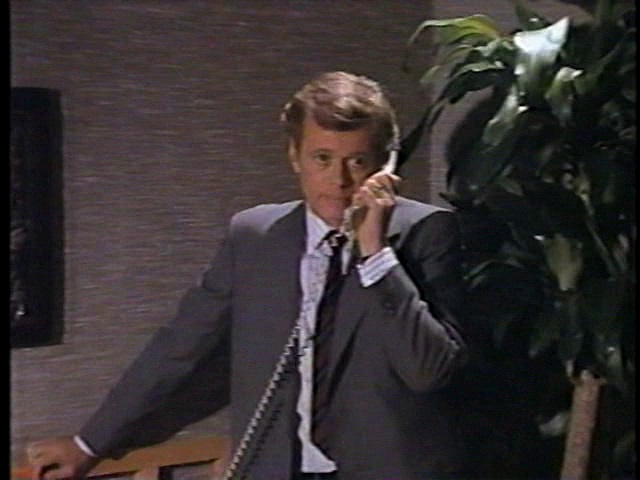
There’s plenty of potential in THE PHONE CALL, with Michael potentially learning how gays are being treated when he soon finds himself disassociated from his friends and co-workers, but the problem is that Michael isn’t really sympathetic, while Casey seems more genuinely troubled to the point where he’s more rootable than the homophobic lead that’s terrible at explaining himself and doesn’t really even learn any lessons. (Lea’s performance helps as well.) The plotting is strictly garden-variety late-‘80s-early-‘90s thriller, and only occasionally goes beyond its standard gendered conventions. THE PHONE CALL ends up a disappointment, but it’s not without its curiosity factor, especially since you can watch it and come up with at least a half-dozen ways that it could have been more interesting. Those looking for a more explicit tale of ‘90s gay phone sex can track down the even more obscure JERKER, though that’s more of a relationship tale seen through the style of performance art.
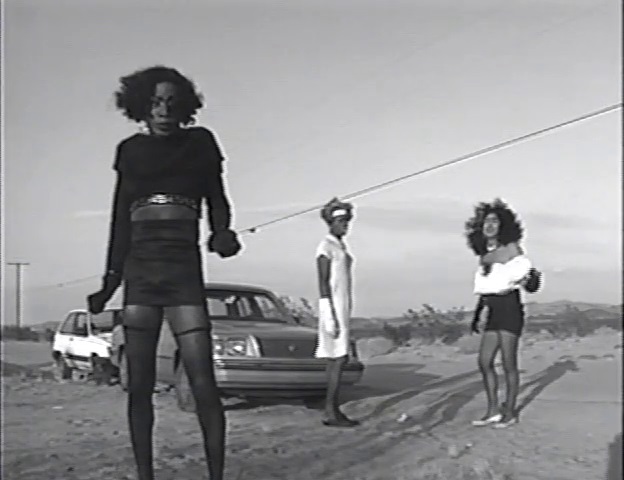
THE DAYS OF PENTECOST (1995)
If you’re reading Daily Grindhouse, you’re likely a fan of Russ Meyer’s FASTER, PUSSYCAT… KILL! KILL! (and if you’re not, maybe Entertainment Tonight has a website or something). While PUSSYCAT is an undeniable classis of psychotronic cinema, wouldn’t it be great if it was remade… with drag queens?

That’s the case of Lawrence Elbert’s wild, low-budget thrill ride DAYS OF PENTECOST, which finds a trio of quarrelling queens (Mario Gardner, Marcus Kailund-Nazatrio and Andre Pearson) stuck in the middle of nowhere after their car breaks down. The three quickly get involved with a nubile twink and a gas station attendant, the latter played by a curiously un-dragged Alexis Arquette, and chaos ensues, complete with musical numbers, over-the-top dialogue and plenty of shot-for-shot homages to the classic. At barely over an hour, DAYS OF PENTECOST doesn’t overstay its welcome, and the results should have made for a cult favorite – if only bare distribution and music rights issues (including the frequent use of Nina Simone) didn’t keep it stuck in limbo.
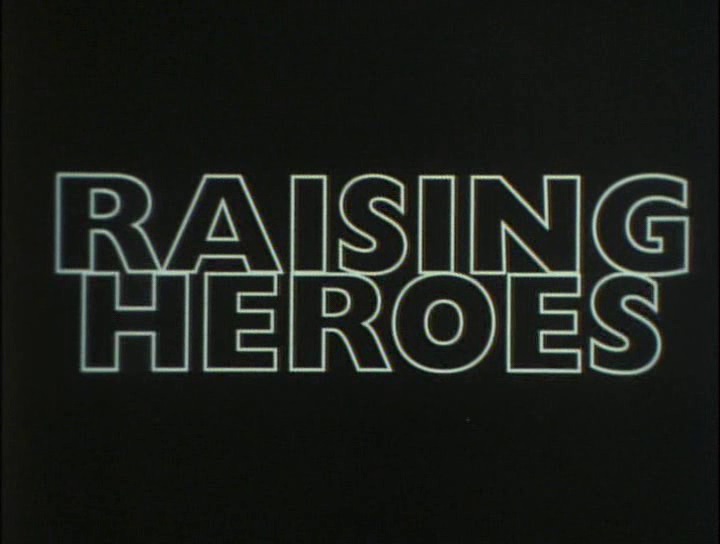
RAISING HEROES (1996)
Before hitting gay paydirt with the BEAR CITY trilogy, Douglas Langway dipped his toes into filmmaking for gay audiences with RAISING HEROES, a counter to the many gay coming-out dramas and romantic comedies that were hitting video stores at the time. As prominently featured on the cover art, RAISING HEROES was an action film, unlike the gay films before, with the tag line, “THIS TIME, THE GAY GUY’S GOT THE GUN” promising the gay vengeance pic we’ve all been waiting for. The film itself, however, a bit too muddled to warrant the accolade of “The most important gay film of the decade” featured on the video box, courtesy the twink oglers at XY Magazine.
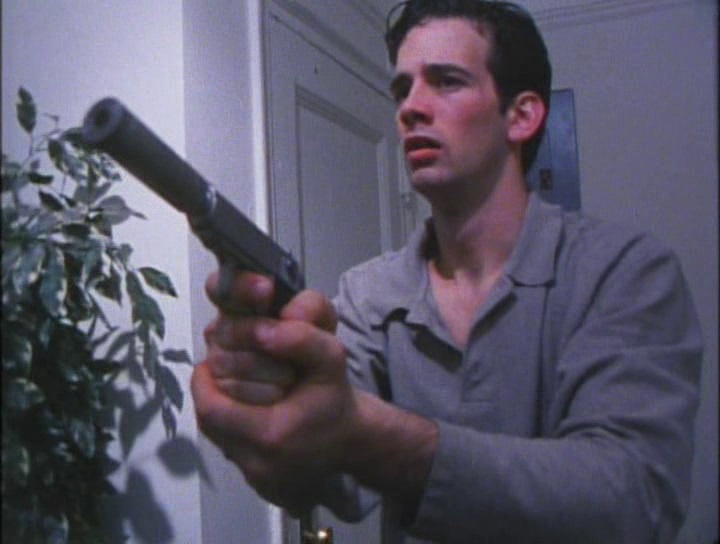
RAISING HEROES is the story of Josh and Paul, a committed couple on the verge of adopting Paul’s best friend’s son when their life is turned upside-down when Josh witnesses a minor league mob hit. Josh is then pursued by various mobsters, while not telling Paul due to his fear of conflict. The climax naturally occurs with one of those Mexican stand-offs so prevalent in the post-Tarantino era of crime films, but until then, we get a fair share of drama, including homophobic social workers, a closeted mobster, and a doomed neighbor never given any established personality.
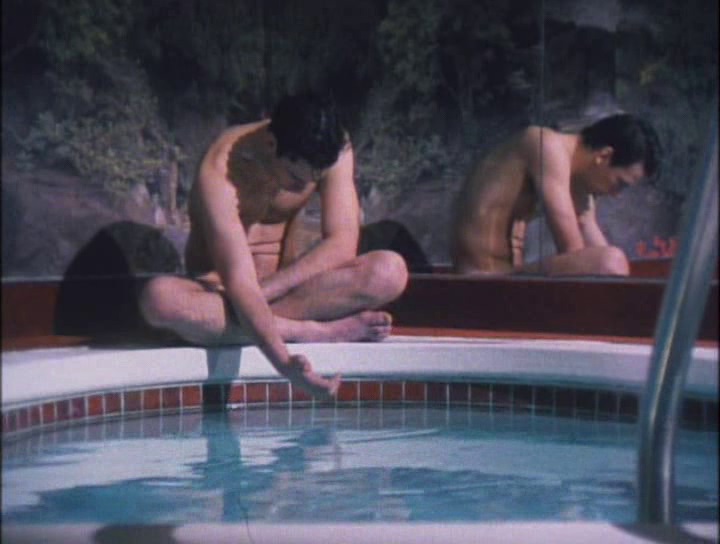
There are plenty of admirable things about RAISING HEROES in terms of plot and even style; Langway has a good eye for action and the shootout scenes are genuinely well-made. The problem is that the bulk of the film is drearily-shot and still features some problems common to queer films of the era (straight characters are either best friends or total homophobes, for example), so the end results never really propelled RAISING HEROES out of the gay ghetto into mainstream action acceptance. Still, it’s a noteworthy attempt, and one which deserves at least a shout-out.
You can stream RAISING HEROES on Amazon Prime
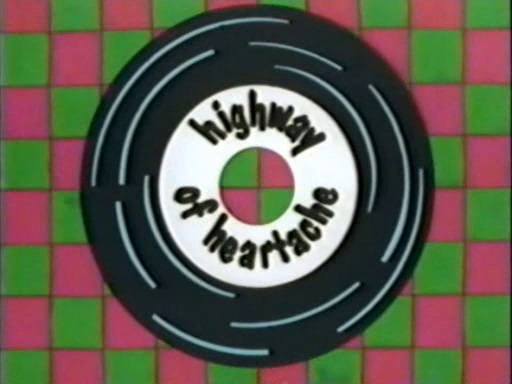
HIGHWAY OF HEARTACHE (1997)
A day-glo, campy country-western musical with a ridiculously high bad taste level and a cast that includes multiple drag queens should be the sort of thing that’s fondly known by cult audiences, referenced in mini-challenges on RuPaul’s Drag Race and quoted at gay bars all across the globe. Instead, Gregory Wild’s HIGHWAY OF HEARTACHE sits in VHS obscurity, even more unknown than drag vehicles like VEGAS IN SPACE and TICKED-OFF TRANNIES WITH KNIVES. Like a bastard child of John Waters and Pee-Wee Herman, HIGHWAY OF HEARTACHE is a kaleidoscopic onslaught of potty humor, unsubtle satire and country twang that deserves a wider audience than it’s gotten.
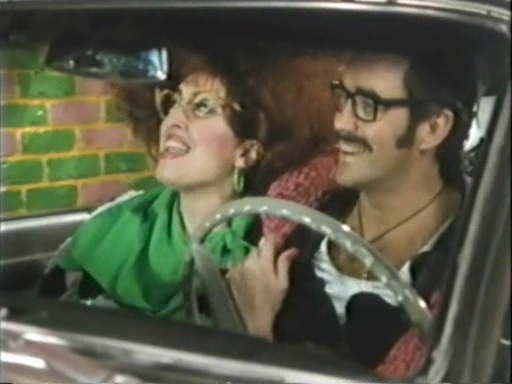
Barbara Chamberlain stars as Wynona-Sue Turnpike, a trailer trash wife who longs to be a country star, and runs off to do so after being responsible for the death of her cheating husband. Her journey takes a number of John Waters-esque turns, but unlike the characters portrayed by Divine in the early Waters films, Turnpike’s a victim of circumstance, abused and coerced by everyone around her. To describe too much more would be a disservice, but there are catchy musical numbers galore, extensive disease jokes, plenty of bawdy humor and enough oddball surrealism to keep any cult movie fan at least mildly distracted even if it never quite hits the sincere, dirty misanthropy of the likes of FEMALE TROUBLE. The only “name” in HIGHWAY OF HEARTACHE is openly gay wrestler Pat Patterson, but none of that matters as the garish, color-splattered spectacle with occasional animation is memorable enough. It’d make a great double-bill with DANCER IN THE DARK.
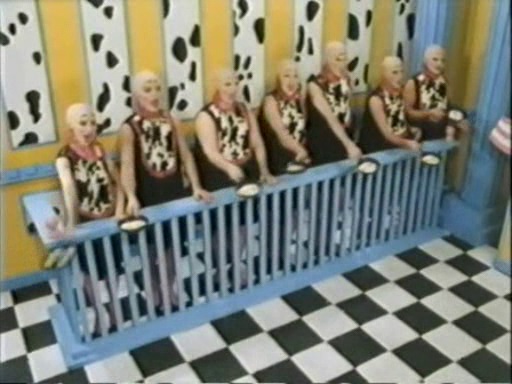
- JIM WYNORSKI RETURNS WITH THE CREATURE FEATURE ‘GILA’ - May 1, 2014
Tags: camp, Canada, City in Panic, gay, Highway of Heartache, LGBTQ, Mascara, The Fruit Machine

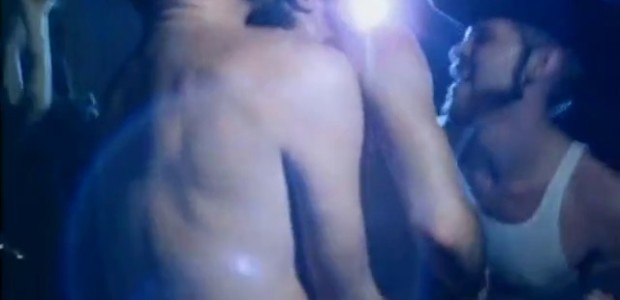

No Comments